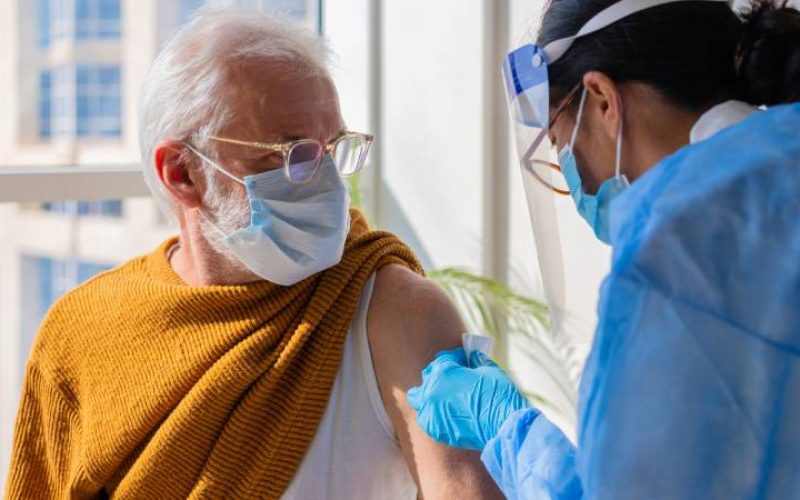by Kristina Hooper, Invesco Canada
Weekly Market Compass: How might COVID variants impact global markets? Kristina Hooper assesses what we’re learning and how that news might impact investors.
For much of last year, I believe every single blog I wrote included comments about the COVID-19 pandemic. And then effective vaccines were developed in what to me was nothing short of a medical miracle. Re-openings and the global economic rebound captured more attention. We were even able to worry about inflation — something that would have seemed like a luxury a year ago. But I am now revisiting COVID-19 given recent events.
Variants emerge as a global concern
The Delta variant (B.1.617) is spreading at a rapid rate, which has caused the World Health Organization to label it as a “variant of concern.” To be specific, the Delta variant is spreading approximately 50% faster than the Alpha variant, which in turn spread approximately 50% faster than the original virus.1
The Delta variant is formidable; it has been described as “the most hypertransmissible, contagious version of the virus we’ve seen to date, for sure — it’s a superspreader strain if there ever was one” by Eric Topol, professor of molecular medicine and an executive vice president at the Scripps Research Institution.2
Of course that is a concern for countries with low vaccination rates. However, I have received questions about why that should be of concern for countries with high vaccination levels. For context, I turn to Israel, which I’ve long stated represents the gold standard in effective vaccination rollouts .
Israel voices worry about Delta variant
Israel had an extremely successful vaccination campaign, with 59.9% of the population fully vaccinated, and 65.4% receiving at least one dose.3 Israel was able to drive down COVID-19 infections to five new cases on May 30, but now that the Delta variant is spreading, it is up to 496 new cases on July 5.4
Israeli Prime Minister Naftali Bennett warned that with the Delta variant “running amok,” Israel may need to reimpose certain restrictions that were lifted when infection levels had gone down.5 That’s because vaccines such as Pfizer seem to be less effective in protecting against the Delta variant of the virus than originally thought. Israel has found that the Pfizer vaccine is only 64% effective in preventing both infection and symptomatic disease, although it remains 93% effective in preventing hospitalization.6 This is similar to the findings we have seen from the UK.
This is both positive and negative: the good news is that these two vaccines are still very effective in preventing serious illness from the Delta variant. The bad news is that they may not be as effective in stopping the spread of the virus. And so in a country like the U.S., where there are portions of the country with low vaccination levels interspersed with portions with high vaccination levels, the Delta variant could still spread. In essence, the hoped-for “vaccination wall” may be more of a “vaccination speed bump” — especially now that nearly all mask mandates have been lifted.
The UK is planning to reopen fully on July 19, which includes no mask and social distancing requirements (although contact tracing will remain in place as well as isolation requirements for those testing positive). With high vaccination levels (using AstraZeneca and Pfizer vaccine) and growing COVID-19 cases, this will prove an interesting test case to watch as virus data unfolds.
Also, we do not know the effectiveness of many other vaccines relative to the Delta variant, but they could offer less protection. Differences in efficacy levels may mean different outcomes for different countries depending on the vaccines they used/are using to vaccinate their populations.
Lambda variant is spreading in South America
Finally, we have a new variant of COVID-19 to watch — the Lambda variant (C.37). It is not yet listed as a “variant of concern” by the World Health Organization, but given its rapid spread in South America, that could change. Concerns are already being raised that some vaccines may not be very effective in protecting against this strain, so we will have to follow it closely.
The reality is that the longer it takes to vaccinate countries, the more risk arises that even more potent strains of COVID-19 may develop. This is particularly concerning in emerging markets countries, which still need far more assistance in vaccinating their populations than developed countries have provided. While the development of these vaccines remains a medical miracle, they are only as good as their distribution — and of course they are not perfectly effective against mutations that continue to be created.
Implications for investors
Why should this matter to investors? Well, we certainly don’t expect the kind of lockdowns we saw during the first wave of COVID-19 last year (although we could see some renewed stringency, as evidenced by what Israel is considering). Yet markets could react as news develops. For example, while market sentiment toward the UK is growing bullish on reopening, an about-face in virus policy could quickly reverse this.
Recently, we have had days when the yield on the 10-year U.S. Treasury fell despite inflationary pressures and signs of improving economic growth; the drop was attributed by many to the spread of the Delta variant. I would concur. Similarly, we could see stocks experience volatility and sell-offs if COVID-19 infection rates continue to rise, or variants develop that are even more contagious or dangerous. And in terms of emerging markets, some countries’ recoveries may be delayed because of more contagious variants. In my view, this reinforces the need for a discerning approach to EM investing — one that takes a bottom-up view of growth opportunities, versus simply seeking out broad-based exposure.
With contributions from Ashley Oerth
1 Source: Yale Medicine, “5 Things to Know About the Delta Variant,” July 2, 2021
2 Source: Scientific American, “How Dangerous Is the Delta Variant, and Will It Cause a COVID Surge in the U.S.?” June 29, 2021
3 Source: Health Ministry of the Government of Israel, as of July 5, 2021
4 Source: Johns Hopkins University CSSE
5 Source: Medical Xpress, “Israel data ‘preliminary signal’ Delta variant can bypass vaccine: expert,” July 5, 2021
6 Source: NBC News, “Israel sees drop in Pfizer Covid vaccine protection, still strong in severe illness,” July 6, 2021
This post was first published at the official blog of Invesco Canada.














